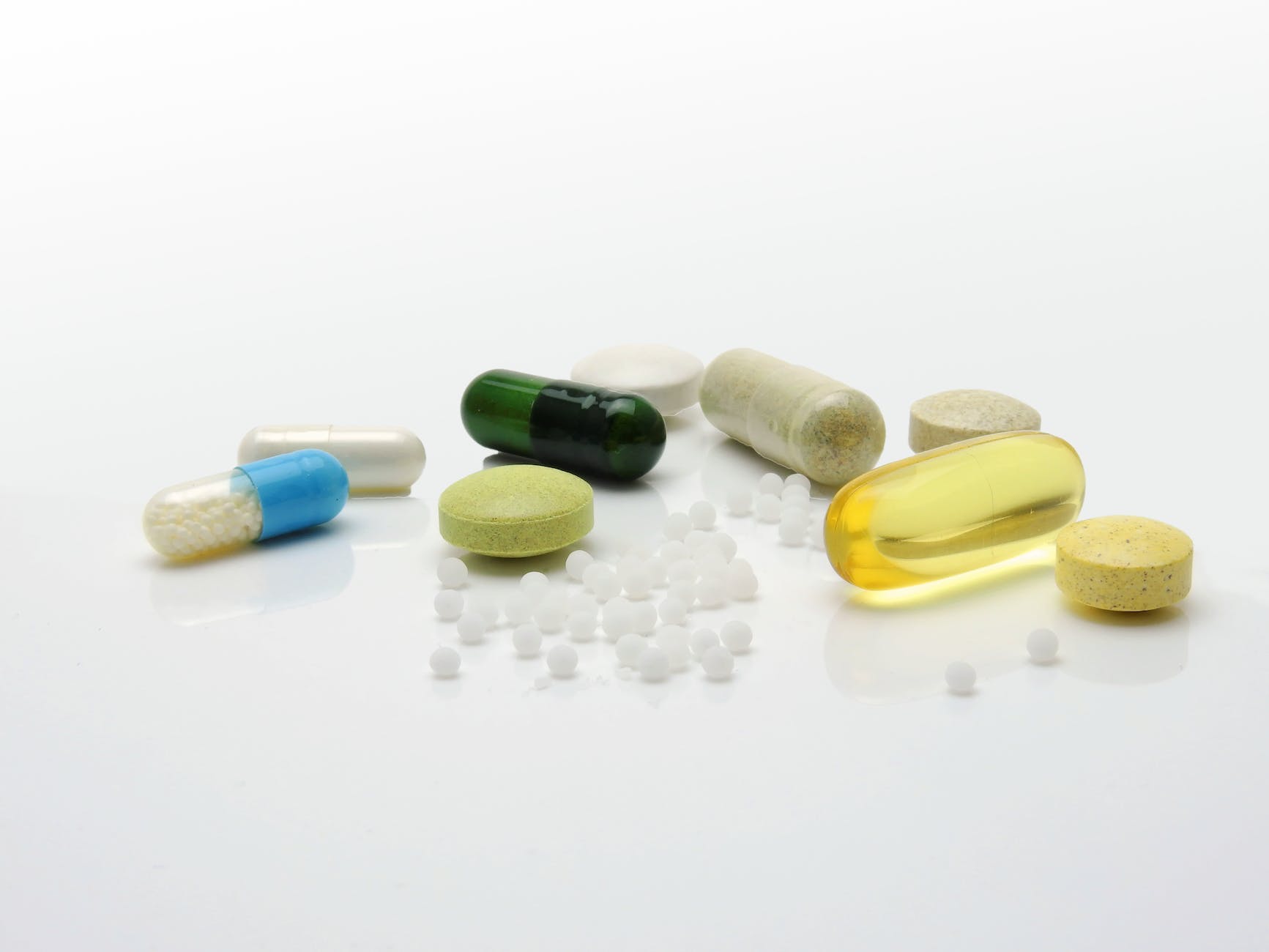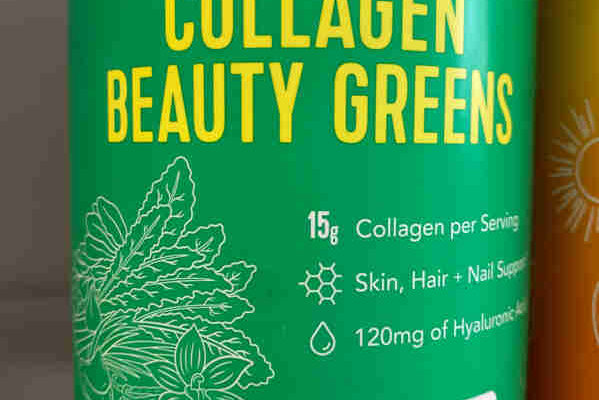Collagen is primarily composed of three amino acids: glycine, proline, and hydroxyproline. It is present in connective tissue, skin, tendons, bones, and cartilage, and it offers structural support to these tissues.
Collagen also participates in cellular activities such as tissue repair, immunological response, cellular communication, and cellular migration, which are required for tissue repair and maintenance.
The most abundant structural protein in mammalian bodies is collagen. Collagen peptides have quickly gained favor in the wellness sector, whether as a powder or pill. Many people are jumping on the collagen bandwagon because of its supposed benefits for hair, skin, nails, the gut, and joints. Collagen is increasingly being used in smoothies, baked goods, coffee, tea, and as a supplement. According to studies, the collagen supplement market will be worth $7 billion per year by 2027.
Yet, in the end, what does science have to say about collagen? Is it everything it’s talked up to be? A licensed nutritionist will present the evidence to you.
The framework of your cells and tissues is made up of structural proteins.
Fibroblasts, which are connective tissue cells, are in charge of collagen production and maintenance. As we age, fibroblast function deteriorates, and collagen production fragments and slows. These alterations, together with the loss of another structural protein called elastin, resulting in aging symptoms.
Some lifestyle variables, such as smoking, heavy drinking, and excessive sun exposure, may further hasten collagen degradation.


Your body naturally manufactures collagen. Collagen can also be obtained from foods such as chicken skin, fish skin, egg whites, and bone broth.
Collagen powder, capsules, and topicals are becoming increasingly popular for addressing aging symptoms such as wrinkles, skin moisture, and joint discomfort. It’s also being used by doctors to heal wounds, burns, and diabetic ulcers.
What Is the Research Saying?
While social conversations might provide insight into what people are talking about in the supplement space, what matters most is what the study reveals.
Collagen May Benefit Skin Health
The most prevalent sort of collagen supplement research focuses on the advantages to skin health. Collagen supplements or powders may improve skin health and look, according to research. One analysis indicated that using hydrolyzed collagen supplements improved skin elasticity, moisture, and wrinkles in a total of 1,125 individuals (aged 20-70). These findings were made after 90 days of consumption.
For 12 weeks, another study examined 50mL of a collagen supplement, including hydrolyzed collagen, hyaluronic acid, vitamins, and minerals. Daily use of the supplement resulted in a noticeable reduction in skin dryness and wrinkles, as well as an increase in collagen density and skin firmness.
While a lot of studies suggest that collagen is helpful in improving skin health and combating signs of aging, it is crucial to note that many of these studies are supported by collagen product manufacturers, which has the potential to affect study results.
Collagen May Benefit Joint Health
There is also a substantial amount of studies demonstrating the effect of collagen on joint health, including osteoarthritis and bone density loss as we age. Preclinical research indicates that ingesting hydrolysate collagen promotes tissue regeneration by boosting collagen production. Ingestion has also been shown in clinical research to help minimize joint discomfort and bone density loss.
One study used 120 people in a double-blind, randomized, placebo-controlled clinical trial (the gold standard in research). They were given either the test product or a placebo for 90 days. Participants in the test product group reported 43% less joint discomfort and 39% greater joint mobility.
According to one study, athletes who take collagen supplements may have better connective tissue health. Another study found no relief in knee pain for 167 healthy, active persons ranging in age from middle-aged to old.
The verdict is still out on nail health.
Some evidence to support the use of collagen supplements for enhancing skin, hair, and joint health, additional study is needed to support the use of collagen for nail health. A randomized, double-blind, placebo-controlled research of 88 people who consumed hydrolyzed eggshell membranes found improvements for the face and hair but not for the nails.
Further research is required before reaching a conclusion about the use of collagen supplements. However, collagen supplements may be beneficial for enhancing skin, hair, and joint health at the moment, but data on nails is conflicting.
These are some simple ways to incorporate collagen into your diet.
You can undoubtedly incorporate collagen into your diet on a daily basis, but stirring it into ordinary water will quickly become monotonous. Want to add something more intriguing (and tasty) to your collagen routine? Explore these inventive ways to incorporate them into foods and beverages.
Mix Collagen into your yogurt.
Swirl it into flavored yogurt. Consider incorporating some berries or citrus fruits into your mid-morning or afternoon snack. The additional vitamin C provided by these fruits aids in the stimulation of collagen formation.
Make it into bars by baking it.
Baked sweets and collagen powder are a marriage made in heaven! Whether you’re making protein bars, granola bars, or brownies, you can sneak in a serving of collagen. Squeeze some into these chocolatey flaxseed brownies.
Incorporate it into scrambled eggs.
With 6 grams of protein per large egg, scrambled eggs are already a high-protein meal. Increase the protein content of your morning scramble by mixing in unflavored collagen powder. (A sprinkle of cheese masks any gritty flavor.) You can use this technique to make any mixed egg dish you choose, such as quiches, frittatas, and egg casseroles.
Make a Smoothie with Collagen.
Smoothies are the most common way to obtain your daily collagen, but they don’t have to be boring. Make a chocolatey dessert smoothie with your favorite powder. For a quick treat, combine 1/2 cup plain Greek yogurt, 14 cup milk, 1 frozen banana, 1 tablespoon chocolate syrup, and a scoop of collagen powder.
Put it in Soup

Not every soup is a good candidate for collagen powder. But cream-based soups can easily include this supplement in its velvety fold. If you add a serving or two of unflavored collagen powder to this potato, leek, and white bean soup, you’ll probably never notice.
Make creamy pasta with it.
Creamy pasta, like creamy soups, provides velvety vessels for concealed collagen. Mix some unflavored collagen powder into your mac and cheese or pasta alfredo sauce.
Combine with Nut Butter
If you’re reaching for the jar of peanut butter, reach for the jar of collagen powder as well. Powdered collagen is easily incorporated into the creaminess of nut butter and other spreads. Snack on high-protein PB&J, cashew butter crackers, or apple slices with almond butter.
Mix Collagen into the muffin batter.
Muffins for skin and joint health sound like a dream come true. Yes! Adding collagen powder to muffin batter is another way to acquire extra collagen.
It’s a great addition to these raspberry oatmeal muffins, which are strong in fiber from whole-grain oats and brimming with juicy berries. (Don’t worry; the high temperatures of oven baking will have no effect on the nutritious content of collagen powder.)
Mix it into your coffee or tea.
It doesn’t get much easier than adding collagen into a cup of coffee or tea. In heated liquids, the powder dissolves quickly. Just make sure to stir thoroughly to avoid any unsightly clumps in your morning brew. (You can also try adding milk or creamer to disguise textural differences.)
Put it in your oatmeal.
Oatmeal’s substantial texture is ideal for concealing a powdered supplement. This cinnamon roll oatmeal, enhanced with collagen, will keep you going in the morning.
Combine it with the applesauce.
If you are in the mood for some applesauce, it’s a great time to add collagen. Whether homemade or store-bought, the moisture in applesauce easily absorbs the powder.
To make your own protein-packed sauce, core, slice, and peel four apples and throw them in a skillet. Cover with water (approximately 3/4 cup) and simmer until the apples begin to break down. Add sugar and cinnamon to taste, as well as a scoop of collagen powder, and mash until smooth.
Food vs. Collagen Supplements
Your body spontaneously creates collagen from amino acids so it may not be necessary to take additional collagen supplements. You may help your body’s collagen production by eating enough protein, which can be found in foods like chicken, fish, beans, eggs, lentils, and nuts.
Eating a diverse diet ensures that you are getting enough vitamins and minerals, including calcium, vitamin D, vitamin C, and zinc, to maintain healthy bones, skin, hair, nails, and joints.
Collagen supplements or powder can help you increase your protein intake, they are not required. If you are concerned about your protein consumption or need advice, consult a trained nutritionist.
Possible Hazards
Collagen supplements are considered safe and have no negative side effects. The possible risk with collagen supplements stems from the other substances that manufacturers may insert.
Collagen supplement manufacturers may include botanicals or high doses of vitamins that promote skin, nail, and hair health. Certain herbal extracts may interact with prescription drugs or be unsafe for pregnant or breastfeeding women.
Like all supplements, they are not regulated by the FDA. There is scientific evidence to support the benefits claimed by collagen supplements, they should not be used in place of any prescription medications prescribed by a healthcare physician.

Look for a collagen supplement that has been third-party evaluated to assure you are getting a safe product. These organizations that are commonly used include NSP, USP, and ConsumerLab.
To Conclude
Using collagen powder in your daily meals and snacks might be a gastronomic experience! Start with the ideas above for inspiration, or come up with your own.
Collagen supplements may be a worthwhile addition to your diet for the benefits of healthy skin, bones, and joints. But before introducing collagen or another new supplement to your diet, always consult with a healthcare expert. It may contain additives that interact with medications you are taking and may be harmful to pregnant or nursing women.
